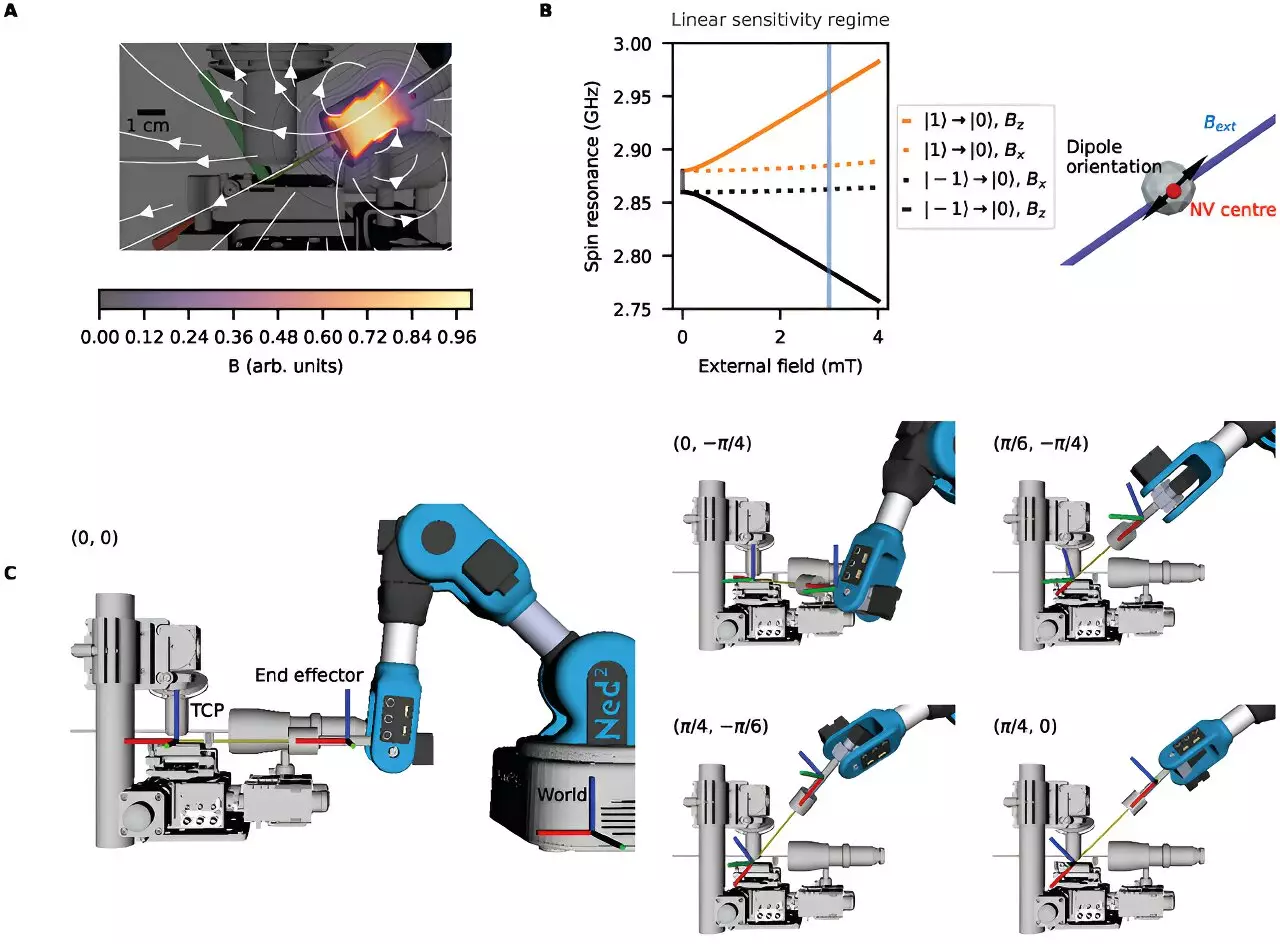Quantum research is set to reach new heights with the development of a groundbreaking robotic arm. The Quantum Engineering Technology Labs and the Bristol Robotics Laboratory (BRL) at the University of Bristol have unveiled a unique design that promises to revolutionize quantum experiments. With this innovative arm, scientists will be able to conduct experiments with unprecedented levels of speed, detail, and complexity. The potential real-world applications of quantum technology span from medical advancements to space communication. By integrating robotic features into quantum experiments, researchers will now have increased prototyping speed, control, and robustness.
Quantum technology has captured the imaginations of scientists and innovators across various industries. Its potential to revolutionize healthcare, communication, and computation is unrivaled. From monitoring cell conditions to enabling secure communication in space, the applications are vast. However, these experiments often require highly constrained environments that combine ultra-low temperatures, atomic-scale interactions, and tightly-aligned laser beams. As a result, the exploration of quantum phenomena has been limited by the tools available.
A Leap Forward in Quantum Research
Lead author Dr. Joe Smith, a Senior Research Associate at the University of Bristol’s School of Electrical, Electronic and Mechanical Engineering, explains that standard lab components alone would not suffice for their experiment. This limitation prompted the team to explore robotics as a solution. The successful integration of a robotic arm into quantum experiments has wider implications for the field. As Dr. Smith notes, this technology has the potential to improve a wide range of quantum sensing experiments and expand their scope beyond the confines of the quantum optics lab.
Inspired by the precision and versatility of robotic surgery, Dr. Smith and his team recognized the value of incorporating robotics into quantum research. By leveraging the ability of robots to navigate complex environments, the research team developed the robotic arm to enhance the alignment and manipulation of quantum experiments. Co-author Dr. Krishna Coimbatore Balram, an Associate Professor in Photonic Quantum Engineering at the University of Bristol, emphasizes the importance of applying advancements from other fields, such as robotics, to propel quantum technologies forward.
The new robotic arm boasts a high-strength magnet that can be positioned in three-dimensional space at any angle, effortlessly maneuvering around obstacles. Equipped with tools like electrodes, lasers, and mirror surfaces, the robotic arm enables scientists to achieve precise alignment and manipulation in a variety of experimental setups. This level of flexibility and precision has the potential to unlock breakthroughs in a range of quantum research areas.
The Future of Quantum Research
With the introduction of this innovative robotic arm, the trajectory of quantum research is set to accelerate exponentially. Scientists will be able to conduct experiments with greater speed, detail, and complexity, pushing the boundaries of our understanding of quantum phenomena. As the arm’s capabilities improve and more researchers adopt this technology, the applications of quantum research will extend into various sectors. From medicine to telecommunications, the impact of this advancement could reshape multiple industries.
The integration of robotics into quantum research represents a significant milestone in the field’s evolution. The development of a unique robotic arm by the University of Bristol’s Quantum Engineering Technology Labs and Bristol Robotics Laboratory opens up new possibilities for scientists to conduct experiments with unprecedented speed and precision. The potential applications of this technology are immense, and as researchers continue to innovate, the impact of quantum technology on our lives will only grow stronger.


Leave a Reply